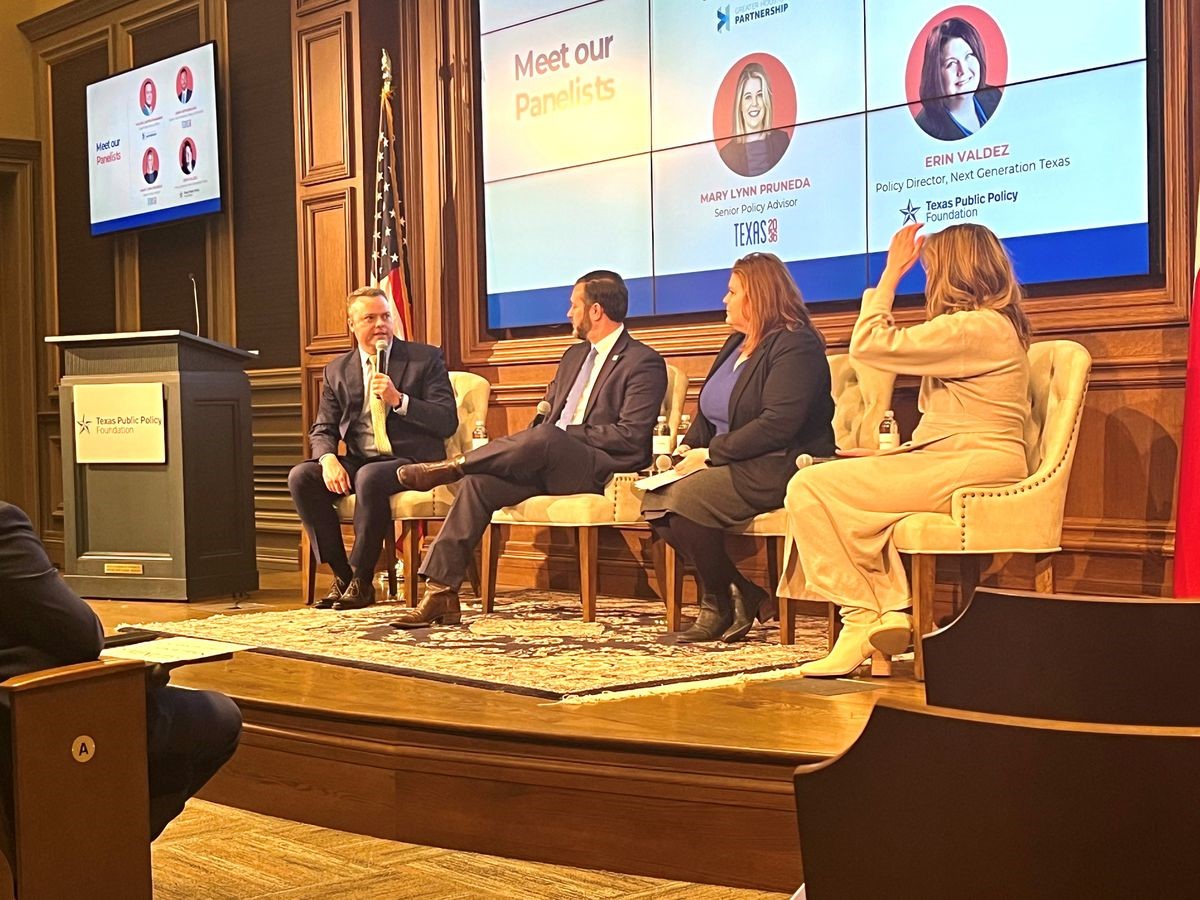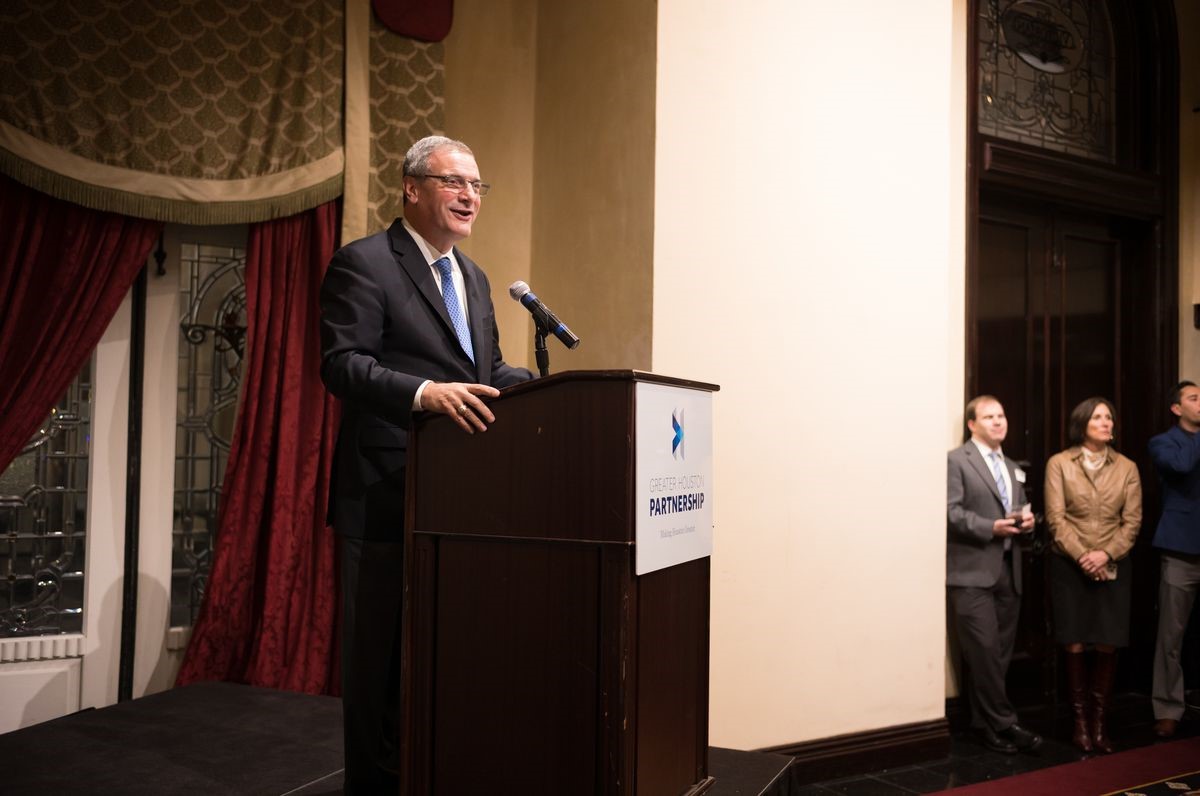HOU in ATX: Legislative Update – Week 3
Published Jan 27, 2023 by A.J. Mistretta
This week, Lt. Gov. Dan Patrick announced Senate committee assignments, the Partnership highlighted the importance of a strong public school accountability system, and welcomed it's members to Austin to advocate for our Executive Priorities.
Senate committee assignments announced
Lt. Gov. Dan Patrick unveiled committee assignments with Houston-area Senators chairing several critical senate committees. Of the sixteen full committees, six will be chaired by Houston-area Senators.
Senator Joan Huffman (R-Houston) will chair the powerful Senate Finance Committee responsible for writing the state budget.
Senator John Whitmire (D-Houston) was reappointed chair of the Senate Criminal Justice Committee and will be the only Democratic Senator to lead a committee.
Why it matters: This committee will have jurisdiction over any potential criminal court expansion, which could address Harris County’s prevailing backlog. Senators Bettencourt, Huffman, and Miles will join him on the committee.
Senator Brandon Creighton (R-Conroe) was named chair of the Education Committee, which will now oversee K-12 and higher education. Several priority issues will funnel through Creighton’s committees, including public school accountability, K-12 curriculum reforms, and community college finance reform.
One more point: Freshman Senator Mayes Middleton (R-Galveston) was appointed as vice chair of the Higher Education subcommittee.
Other notable Houston-area chairs and appointments:
- Senator Paul Bettencourt (R-Houston) will chair the Senate Committee on Local Government.
- Senator Lois Kolkhorst (R-Brenham) will chair the Senate Committee on Health and Human Services. Senator Borris Miles will also join her on this committee.
- Senator Robert Nichols (R-Jacksonville) will chair Senate Committee on Transportation. Other Houston area senators joining Senator Nichols include Senator Carol Alvarado and Senator Borris Miles.
The bottom line: Committee chairs influence what bills make it to the Senate floor and are viewed as strong policy leaders for the issues they oversee.
Go deeper: Click here to view full committee listings
Preserving a strong public school accountability system is a top priority for the Partnership. This week, Taylor Landin, the Partnership’s Chief Policy Officer, led a panel discussion of education policy experts from Texas 2036 and the Texas Public Policy Foundation on the importance of accountability and assessments in order to produce students that are college, career and military-ready.
Our thought bubble: Without a strong public school accountability system and assessments, parents and communities are unable to determine which students are falling behind. And we know that if a child is not reading on grade level by the third grade, they are less likely to ever catch up academically.
The Partnership in ATX
The Partnership’s trip to Austin began with a Legislative Briefing on Energy, including expert panelists sharing their knowledge on energy transition, low carbon technology, and hydrogen before a packed room of legislative staff and policy thought leaders.
Panelists included:
- Jeremy Mazur, Senior Policy Advisor, Texas 2036
- Mark Klewpatinond, Global Business Manager, Hydrogen, Exxon Mobil's Low Carbon Solutions
- Carrie Lalou, Director, Business Development, Linde Gas US
The bottom line: Texas is uniquely positioned to lead the world in developing solutions to the dual challenge at the heart of the Energy Transition - how to meet the growing demand for energy while lowering global emissions. Leading the energy transition requires consistent legal and regulatory policy to create certainty, attract investment and accelerate project deployment.
An evening Legislative Reception brought together members of the Legislature, policy leaders, and the Texas business community to celebrate the Houston region.
Bob Harvey, President and CEO of the Greater Houston Partnership, addressed the crowd and outlined the Partnership's 88th Legislative Session Executive Priorities.
Austin Buzz: Dan Patrick announces re-election and energy report released
What’s New: Days after his being sworn-in to a third term as the state’s Lieutenant Governor, Dan Patrick made public comments indicating he will “absolutely” run for a fourth term.
Worth a read: Texas Oil and Gas Association released its annual energy and economic impact report that provides data on the impact of the oil and gas industry on the Texas economy.
During the 88th Legislative Session, the Greater Houston Partnership will provide a weekly update on newsworthy items from Austin. You can view more policy news and archives of our weekly updates here.
 The Houston Report
The Houston Report





















